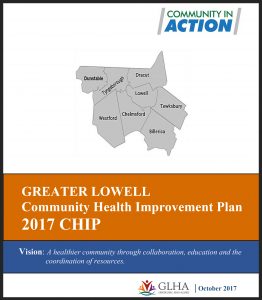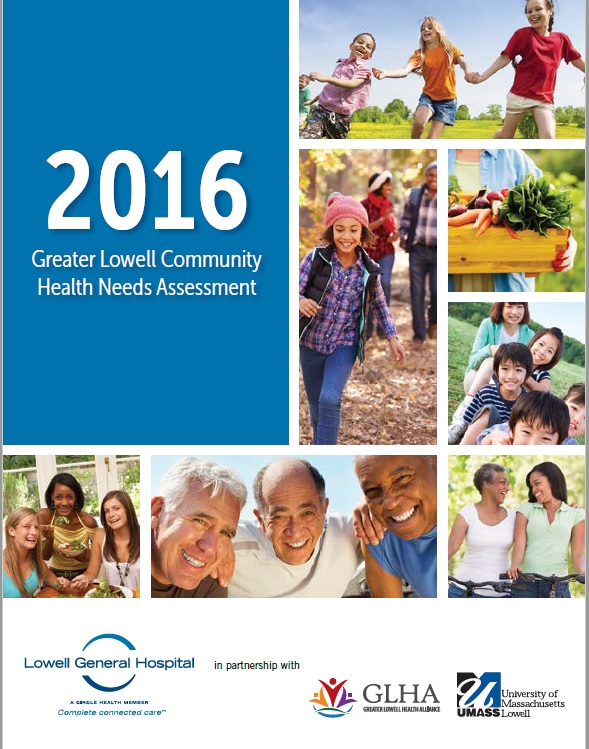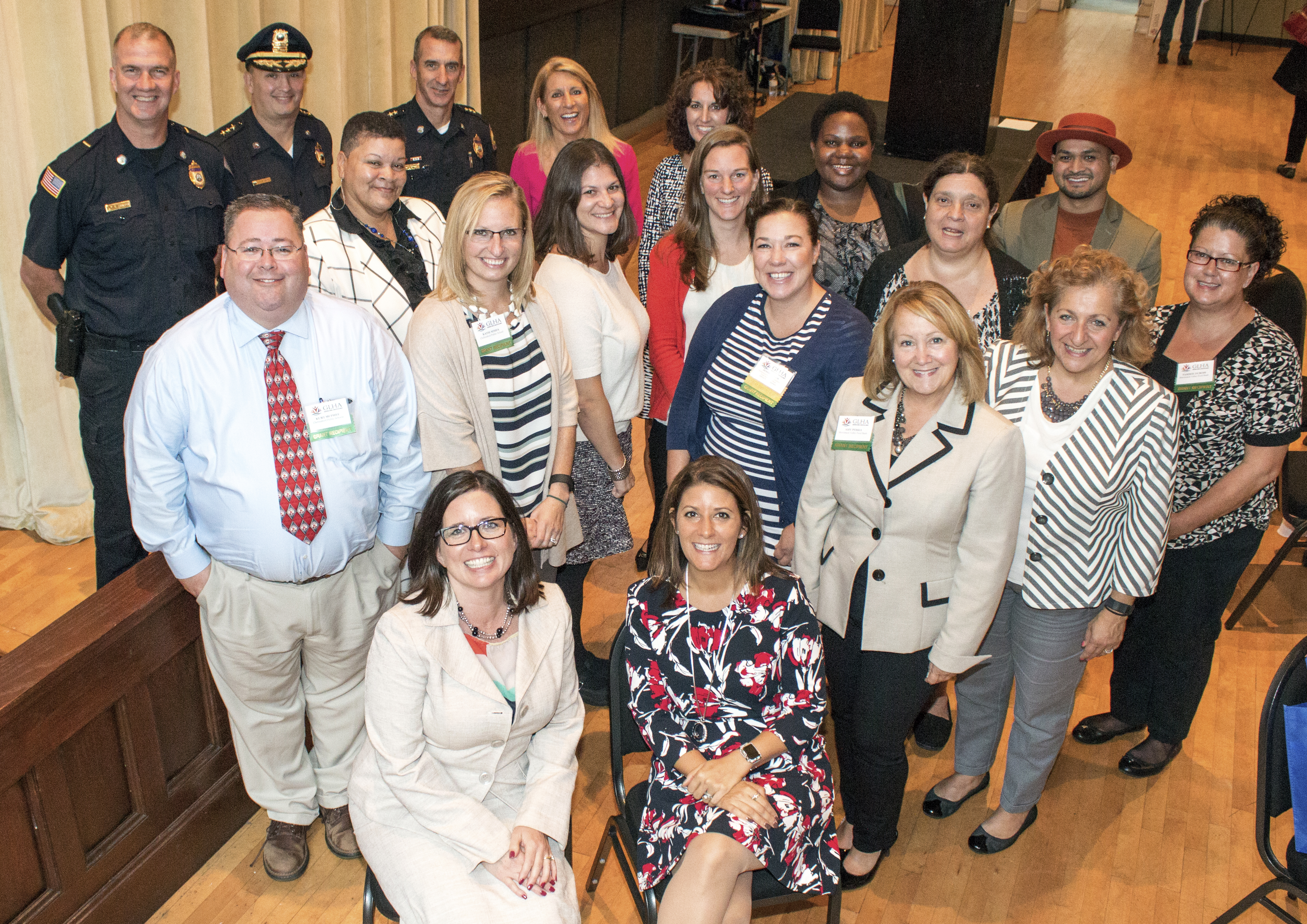Greater Lowell Pride 2018
2nd Annual Merrimack Valley Substance Use Disorder
You’re invited!
We are excited to announce the 2nd Annual Substance Use Disorder Symposium on December 6, 2019 in Westford, Massachusetts. This symposium will bring together Greater Lowell and Merrimack Valley providers in all aspects of the field of substance use disorders, prevention, recovery and support services.
Why is this important? Our communities are suffering from the opioid crisis and substance use. Navigating the system of resources for the opioid crisis is challenging at best. Services are often duplicated and other necessary components are missing, while others remain unknown. We hope that working together will facilitate navigation for anyone who may need it.
It is our hope that this symposium will create an opportunity for all providers, of every scale and size, spark collaboration and create awareness of their services. All are welcome.
As a result of this effort, we will further compile what we hope to be the most comprehensive list of available substance use disorder resources in our area.
We look forward to seeing you on December 6th!
GLHA Announces 2017/2018 Community Health Initiatives Grant Recipients
The GLHA is proud to announce the grant awards for the fall of 2017 to support
programs and services to improve the overall health of the Greater Lowell community. Grants were awarded around health priorities identified by the GLHA’s Community Health Improvement Plan (CHIP) process:
• Access to Healthy Food
• Asthma
• Mental Health
• Physical Activity
• Social Determinants of Health
• Substance Use and Prevention
To qualify, all proposals needed to incorporate a plan to meet the National Standards for Culturally and Linguistically Appropriate Services (CLAS) in health and health care to all individuals in order to reduce disparities and achieve health equity. See a list of the grant recipients.
GLHA Releases First Greater Lowell Community Health Improvement Plan (CHIP)
 The GLHA is excited to announce the release of the first Greater Lowell Community Health Improvement Plan (CHIP). With a goal to create a long-term strategy to strengthen the area’s health systems, our CHIP will be used as road map for health improvement over a three-year period, guiding the investment of resources of organizations with a stake in improving health for the residents of Lowell and the surrounding communities. Our CHIP mission: to turn data into action and working initiatives to address our community’s top health priorities. While addressing specific health priorities, the overarching goal is always one of health equity, meeting the health needs not just for some, but for all. Learn more about the Greater Lowell CHIP.
The GLHA is excited to announce the release of the first Greater Lowell Community Health Improvement Plan (CHIP). With a goal to create a long-term strategy to strengthen the area’s health systems, our CHIP will be used as road map for health improvement over a three-year period, guiding the investment of resources of organizations with a stake in improving health for the residents of Lowell and the surrounding communities. Our CHIP mission: to turn data into action and working initiatives to address our community’s top health priorities. While addressing specific health priorities, the overarching goal is always one of health equity, meeting the health needs not just for some, but for all. Learn more about the Greater Lowell CHIP.
Greater Lowell Health Alliance 2017 Community Health Initiatives Grant Request For Proposals
The Greater Lowell Health Alliance of CHNA 10 is proud to offer grants for the fall of 2017 to support programs and services to improve the overall health of the Greater Lowell community. The purpose of this RFP is to provide grant funding to increase support for services and programs to better meet the needs of communities in the Greater Lowell area.
All proposals MUST incorporate a plan to meet the National Standards for Culturally and Linguistically Appropriate Services (CLAS) in Health and Health Care.
Grants will be awarded around the following health priorities and programs that meet the specific areas of focus identified by the CHIP process.
- Mental Health
- Substance Use and Prevention
- Access to Healthy Food
- Physical Activity
- Asthma
- Social Determinants of Health
Important Dates:
Town of Wilmington: Requests for Proposals on possible Addiction and Counseling Services
The Request for Proposals detailing the services requested may be obtained at the Office of the Town Manager, 121 Glen Road, Wilmington, MA 01887 or by email at wmartiniello@wilmingtonma.gov or at the Town’s website: http//www.wilmingtonma.gov/Pages/WilmingtonMA_purchasing/index.
Proposals will be received at the Office of the Town Manager, 121 Glen Road, Wilmington, MA until 10:00 AM on March 30, 2017. Proposals submitted after this deadline will be rejected. Proposals are subject to the provisions of M.G.L. Chapter 30B as amended to date. The Town of Wilmington specifically reserves the right to reject any or all proposals, or to award or not award the contract for any reason the Town Manager determines to be in the Town’s best interest.
The proposer certifies under penalties of perjury that this proposal has been made and submitted in good faith and without collusion or fraud with any person. As used in this certification, the word “person” shall mean any natural person, business, partnership, corporation, union, committee, club or other organization, entity or group of individuals.
File separately marked “Price” and “Non-Price” proposals marked “Addiction and Family Counseling Services with the Town Manager, Town Hall, Wilmington, MA.
Purchases by the Town of Wilmington are exempt from any Federal, State, Municipal and/or excise tax.
The Town of Wilmington reserves the right to waive any formality and/or to reject any or all proposals or any parts thereof deemed not to be in the best interest of the Town of Wilmington.
Contraception Survey
Students from the University of Massachusetts Lowell are in the initial stages of their Difference Makers project; the development of a contraception app. They are currently conducting a market/needs assessment, and are asking members of the community to participate in their surveymonkey to help them acquire data for their project.
The link to the surveymonkey is provided below. Any participation in this process is greatly appreciated:
Research-Contraception App Survey
https://www.surveymonkey.com/r/GPJ8XBP
GLHA Releases 2016 Community Health Needs Assessment

The Greater Lowell Health Alliance released the 2016 Greater Lowell Community Health Needs Assessment at the GLHA’s 2016 annual meeting on September 28, 2016.
In partnership with the Greater Lowell Health Alliance, Lowell General Hospital in 2016 commissioned researchers and students from the University of
Massachusetts Lowell to conduct a community health needs assessment to identify the unmet medical and public health needs within the Greater Lowell community. The geographic area assessed included the communities of Lowell, Billerica, Chelmsford, Dracut, Dunstable, Tewksbury, Tyngsborough and Westford. This assessment involved primary data collection using focus groups and key informant interviews, as well as secondary data sources, such as the Massachusetts Department of Public Health MassCHIP database and the United States Census. Similar studies were conducted in 2010 and 2013.
Foundation for Action
The study had two key objectives. The first was to fulfill state and federal requirements of Lowell General Hospital to conduct a Comprehensive Health Needs Assessment every three years. The second and ultimately more important objective was to generate a study that would provide a foundation for the GLHA and its partners, including Lowell General, to build consensus on the area’s priority health needs and develop action plans to improve the health of the area’s residents.
A Plan for the Future
The study will prove useful in helping to form the Greater Lowell Health Alliance’s long-term agenda and strategy, with a goal to help meet the unmet healthcare needs and strengthen the area’s health system. In the coming year, the focus of the Greater Lowell Health Alliance will be working with the community to develop a Community Health Improvement Plan (CHIP), based on the priority areas identified in the 2016 Community Health Needs Assessment. A CHIP is used as roadmap for health improvement over a three to five-year period and guides the investment of resources of all organizations that have a stake in improving health for the residents of Lowell and the surrounding communities.
The GLHA’s first Community Health Improvement Plan forum—an opportunity to gather insights and input from various members of the community—will be held on Tuesday, November 1st, from 8 a.m. to noon, at the UMass Lowell Inn & Conference Center. All community members are invited.
GLHA Awards $200,000 in Community Health Grants

The Greater Lowell Health Alliance awarded $200,000 in Community Health grants at the Alliance’s 2016 annual meeting.
The September 28 annual meeting was a celebration of the GLHA’s tenth anniversary as a nonprofit organizations dedicated to identifying and addressing the region’s most urgent unmet health needs.
The GLHA is proud to announce the grant awards for the Fall of 2016 to support programs and services to improve the overall health of the Greater Lowell community. Grants were awarded around the following priority areas:
• Mental Health and Mental Disorders
• Substance Abuse (Including Tobacco Use)
• Chronic Disease (e.g. Asthma, Obesity, Diabetes)
• Prevention & Screenings (e.g. Cancer, children’s nutrition)
The GLHA awarded eight grants totaling $200,000 to community-based organizations to address critical health issues in the Greater Lowell area. Below is the list of the 2016 Community Health Initiatives Grant Recipients:
- Elder Services of the Merrimack Valley, Inc.:Greater Lowell Falls Talk
Project – $40,000. To introduce evidence-based falls prevention program, FallScape, to the CHNA 10 communities and expand programs to reach more frail, homebound populations. - Habitat for Humanity of Greater Lowell: Neighborhood Revitalization
Initiative: Building Healthy Places – $10,000. This grant will go towards the renovation portion of their Centralville neighborhood revitalization Initiative. - Lowell Community Health Center: Youth Substance Use Prevention Project – $39,000. To expand ESWG activities to reduce risk factors and increase protective factors among youth through substance abuse prevention education and outreach programming reaching as many as 300 youth through education and community building activities.
- Lowell House Inc.: Community Opioid Outreach Program (COOP) – $21,000. LHI, LPD, Lowell Fire Department and Lowell Health Department collaboration designed to addresses the opiate epidemic in Lowell. The main objective of the Community Opioid Outreach Program (“COOP”) is to conduct proactive outreach to recent overdose victims, as well as their families and connect them to treatment services in the region.
- McCarthy Middle School, Chelmsford: Strengthening Health of Middle School Students– $16,000. Grant funding will go towards three programs designed to strengthen the social and emotional health of middle school students, to reduce the incidence of self-harm and substance use.
- Merrimack Valley Food Bank: Operation Nourish– $10,000. A children’s feeding program in which MCFB partners with several Lowell Public Schools to address the nutritional needs of children who may struggle with hunger.
- Mill City Grows: Farm to School Partnership Expansion – $25,000. To increase healthy habits of Lowell’s students to improve their health outcomes and decrease obesity and diet related illness.
- Tewksbury Police Department: Regional Jail Diversion Program – $39,000. This program is designed to divert individuals with mental illness and substance abuse away from the criminal justice system and toward the appropriate psychiatric, social, and community-based services.
GLHA Announces $200,000 in Community Health Grants
The Greater Lowell Health Alliance of the Community Health Network Area 10 is pleased to offer grants for the Fall of 2016 to support programs and services to improve the overall health of the Greater Lowell community.
Up to $200,000 will be allocated to address critical health issues, with grants of between $10,000 and $100,000.
Applications are due June 24, 2016. Grant recipients will be notified by August 24, 2016.
Grants will be awarded around the following priority areas: mental health and mental disorders; substance abuse (including tobacco use); chronic disease (e.g. asthma, obesity, diabetes); prevention and screenings (e.g. cancer, children’s nutrition).
Grant awards cannot be used to fund capital or overhead expenses.
